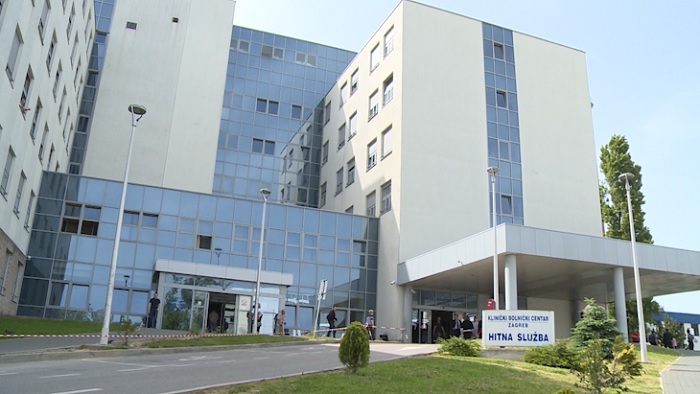Legionella was discovered in a hospital in Zagreb, three people died, doctors reassure the public

Six patients treated at the University Hospital Centre Zagreb have been infected with legionella. The situation started six weeks ago and three people died as a result of the disease.
All those infected had severe illnesses and were immunocompromised, and the legionella drastically worsened their condition, according to the UHC Zagreb.
“One person died on 4 April,” the deputy director for quality, Milivoj Novak, told the news site 24sata on Tuesday.
“We are conducting an analysis, but I can only tell you now that we had six infected people, three of whom died. No one died today or yesterday,” he added.
As the daily Jutarnji list found out, the whole situation with legionella started six weeks ago, and the last person died on 31 May, but it only became known on Monday that the hospital was struggling with the bacteria. The hospital waited ten days for the results of the water test, and it is unclear whether anything was done in the meantime and why pasteurisation and flushing were only started on Tuesday.
An investigation has been launched
“We are talking here about patients who are seriously ill due to the underlying disease, so the legionella has drastically worsened their condition,” said Novak.
Once it was established that the patients were infected, an investigation was launched to find out where the infection came from, as it is known that it can very often spread via air conditioning systems or water.
Legionnaires’ disease is an atypical pneumonia caused by bacteria. It is treated with antibiotics, azithromycin, quinolones or rifampicin.
“We immediately alerted the Croatian Institute of Public Health (HZJZ), which carried out all the analyses and isolated the bacteria in the water system. At the moment, the water is being pasteurised, i.e. hot water is being drained from all the taps in the hospital,” said Novak.
To flush all the taps, the water temperature must be raised to at least 75 degrees Celsius and flushed. How the bacteria got into the water system will be difficult to figure out, but it is known that these bacteria multiply in warm water, so people usually become infected by breathing in infected water droplets. The system is currently being flushed.
Doctors reassure the public
“As far as the first case is concerned, we reacted immediately and informed our colleagues at the HZJZ, the epidemiologists. That was some time ago, after the first case. It is important to say that we have rapid diagnostics at UHC Zagreb. If you have it, you can quickly find out what the patient is dealing with and then you can take appropriate measures,” said Zrinka Bosnjak, a specialist in medical microbiology and parasitology at KBC Zagreb.
She emphasised that the “anti-legionella programme” has been in place for many years and that there is no cause for concern.
“We work according to the protocol and have done everything we can to prevent the transmission of legionella. It is always important to have diagnostics available. You should know that legionella is present in all water, but also that preventive measures are taken every day. This means that the temperature of the water in the tanks is raised weekly to a temperature in which legionella cannot survive,” she added.
UHC Zagreb has no data on when the last person died from legionella. However, they claim that all necessary measures are being taken and samples are being taken throughout the hospital. They also warned that legionella favours the warmer summer months when the infection can spread more easily. For this reason, the systems are pasteurised every week. It was also confirmed that these situations are not exceptional.
“In the summer months, we have an increased number of legionella infections, with a mortality rate of five to ten per cent. That’s why it’s good to talk about it so that the public is sensitised and knows that it’s everywhere,” said Bosnjak.
Kakvo je tvoje mišljenje o ovome?
Učestvuj u diskusiji ili pročitaj komentare





 Srbija
Srbija
 Hrvatska
Hrvatska
 Slovenija
Slovenija



























































